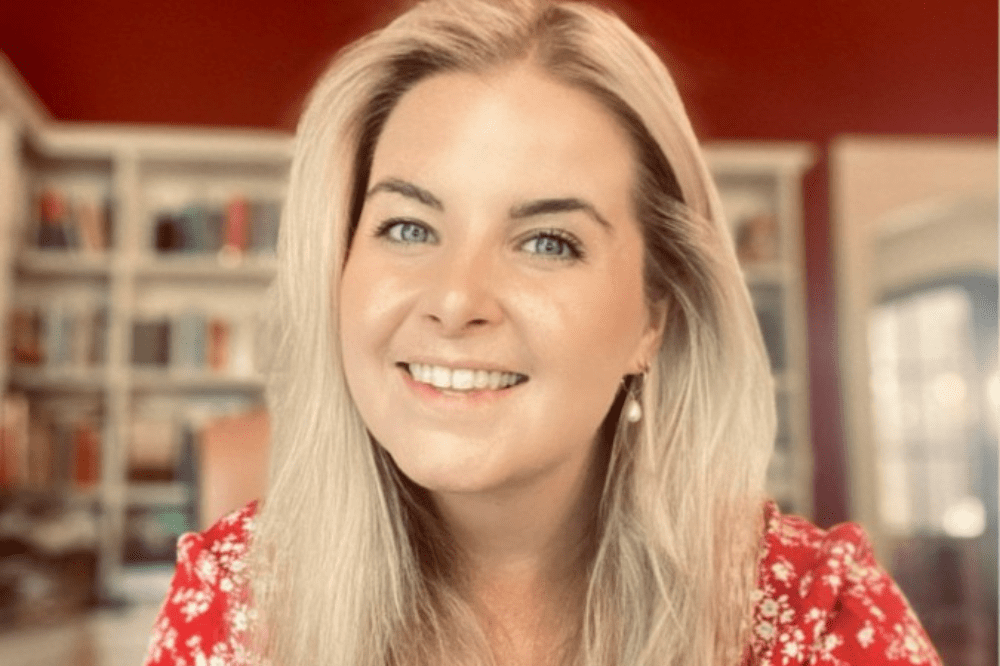

Read more: Why we have a duty to win the war for talent in the insurance sector
Having previously worked in insurance himself, he recognises the challenges that exist around coming up with new ideas for insurance products and services. In fact, he said, insurance was picked for the inaugural report because of, not despite, its challenging nature.
“We thought insurance was a good way of showing how hard we can actually set the challenges for teenagers,” he said. “Because, out of all the industries out there, insurance is probably one of the hardest to understand if you have to just jump into it from a standing start. The fact that [the cohort] actually came out with risk-bearing products was amazing and the way they identified the really hairy issues that are transformation issues for insurance was super fascinating.”
The reason why the programme engaged with teenagers is that they are at peak creativity, Pickford-Wardle said. But additionally, they represent the future customer and they’re closer to the future customer. The conclusion by Pickford-Wardle and his co-founders that teenagers would prove a font of creativity quickly showed itself to be an accurate one, with hundreds of ideas generated that showcased how quickly young people can identify, understand, and problem-solve even the most complex of concepts.
Offering examples of the ideas generated, he highlighted a product called ‘Meta-Protect’ on the new risks side of the opportunity which offers protection for properties and items purchased in the metaverse. On the ‘new claims’ side, an edugame entitled ‘The Flipside’ posited a video game where players can play as a claims handler and interactively learn more about the insurance proposition. Finally, on the new distribution side, a product called ‘Devinsure’ suggested an app that would remove the need for you to research the best insurance quotes yourself.
These are just three of the ideas generated through the programme, he said, and serve as a spotlight on the innovation and entrepreneurial spirit of young people. But the real power of the programme is not just its product creation potential but also the introduction it offers young talent to the insurance marketplace.
“What happens is, they come in for the money and then they get opened up to the opportunity presented to get involved in something interesting,” he said. “And insurance is fundamentally interesting, it is representative of the world around us. It carries all the risks of the world around us and is an opportunity for you to explore whatever you’re interested in. And the big thing is, they realise that their own ideas are valuable. And that’s what they get super hooked on to because that value piece increases their confidence.”
To track how attitudes changed toward insurance, Startup Sherpas did a pre-and post-programme survey gauging interest in an insurance career. The answer was a resolute and blunt ‘no’ across the board, Pickford-Wardle said, but by the end of the syllabus, there was a 267% increase in interest in an insurance career. This can serve as a mechanism to change the dialogue around talent attraction and retention into insurance and to scale up the results seen among the 100-strong sample size offered by the programme.
Read more: Bridging the insurance talent gap – Marsh ‘Rising Star’ on routes into insurance
While it might be assumed that a report of this nature, with its emphasis on the insurance customer of the future, might cater exclusively towards personal lines insurance, he said, it has been crafted in such a way to appeal to businesses of every size and sector across the insurance ecosystem. That’s because the team’s ambition for the report is to communicate that talent and the future of insurance are vital considerations for any and every insurance business.
“We want to tap into the responsibility of insurance to support the report and the work that we’re doing to get teenagers to recognise insurance as an industry to work in and start that conversation,” he said. “This report should spark opportunities for insurance businesses to start what is a five-year transformation process.
“Because this is not an overnight project and while Generation Alpha seems far away now, if you start these transformation projects now and have blueprints created that the industry can use to design what the future of insurance will look like then in five years you’re in a good place.”
In terms of what Startup Sherpas hopes the industry will take from the report, it comes down to three key ambitions. Firstly, he said, he would like insurance businesses to buy the report and discover what’s useful to them within it. Secondly, he hopes they will go one step further and identify the opportunities highlighted by the initiative and take a deeper dive into some of the avenues opened up by the programme.
Thirdly, he highlighted the opportunity for insurers to get involved on an industry-wide level, rolling out a broader programme aimed at helping insurance reflect the world it operates in and to design solutions that will equip the next generation of talent to meet the trials that the market will face. This is a chance for insurers to get to grips with the UN ESG expectations and to start exploring more innovative solutions to the underwriting challenges of the future.
Pickford-Wardle noted that he understands implicitly how easy it is to talk about the solutions of the future, and how hard it can be to truly put them into practice.
“What you need is incredibly well-trained people who are all speaking the same language and actually structurally understand how to make a global level change,” he said. “And that requires innovation to move away from just brightly coloured post-it notes in the corner to become a discipline – that’s what is required to make the future we want rather than the future we want to avoid.”


The global reinsurance sector is expected to feel continued pressure due to several headwinds, according to a new report from S&P Global Ratings, but a predicted increase in underwriting profitability might also be the catalyst for a much-needed turnaround.
S&P has given the sector a negative outlook due to the “endless barrage of headwinds” experienced in the last few years, reflecting expectations of credit trends over the next 12 months, including the distribution of rating outlooks, as well as existing and emerging risks. As of August 31, 19% of ratings on the top 21 global reinsurers were on CreditWatch with negative outlooks, the report noted, while 76% had stable outlooks and only 5% were positive.
The analysts who authored the report pointed to the combined impact of natural catastrophe losses, high inflation, capital market volatility, and increasing cost of capital as the biggest hurdles for reinsurers in 2022 and 2023.
Amid these headwinds, persistent pricing improvements across multiple lines this year signal the possibility of a turnaround, especially with underwriting profitability in both property/casualty and life reinsurance expected to improve for 2022-2023.
According to the report, elevated losses from natural catastrophes and pandemic losses have affected reinsurers’ performance, while sparking pricing increases over the past years. This trend is expected to carry on into the 2023 renewals.
“Reinsurers’ strategies diverge on natural catastrophe risk, and we believe alternative capital will remain an important pillar in the reinsurance space,” said S&P analysts.
Moreover, with market-to-market losses expected to erode capital buffers in 2022, the global reinsurance sector’s capital adequacy could be sustained by improving underwriting earnings, increasing investment income, prudent capital management, and sophisticated levels of risk management.
“We believe fundamental, disciplined underwriting and adequate risk pricing, tighter terms and conditions with clear exclusions, and overall sophisticated risk management are key if reinsurers are to defend their competitive position and preserve earnings and capital strength,” said the analysts.


“One of the undoubted highlights of building this business has been working with Tom, who has been both a great colleague and friend. I look forward to continuing to work with him and supporting Rothesay’s ongoing success in my role on the board going forward.”
Rothesay, which Loudiadis founded with Pearce in 2007, secures the pensions of more than 830,000 people. With assets under management of over £60 billion, the insurer pays out in excess of £230 million every month.
Commenting on his promotion, Pearce stated: “I am delighted to take on the role of CEO following Addy’s outstanding leadership of the business. Since we founded Rothesay, we have always had a shared vision of creating a modern insurer which combined scale along with an innovative mindset, and it has been hugely exciting to work with Addy as we brought that vision to life.
“Addy has been a personal inspiration to me along with so many others in our industry, and I look forward to continuing to benefit from her unparalleled insight and expertise as we continue to deliver on our ambitions for the business.”
Aside from staying on the Rothesay board, Loudiadis will also continue in her role as a trustee of the Rothesay Foundation.
“On behalf of the board, I would like to thank Addy for her exceptional leadership over the past 15 years,” declared Rothesay chair Naguib Kheraj. “She has always led from the front and built an entrepreneurial culture which values excellence, innovation, collaboration, and teamwork. While growing the business rapidly, she has also successfully focussed on effective risk management through volatile markets which included the global financial crisis and the COVID-19 pandemic.
“As one of the longest serving CEOs of a UK-based insurer, we understand the time is now right for Addy to step down as CEO, and we are pleased that she has agreed to stay on as a member of the board. With Tom’s appointment, Rothesay’s future could not be in better hands, and we look forward to supporting him in continuing to grow the business in the years ahead.”
Described as the biggest pensions insurance specialist in the UK, Rothesay has a most recent valuation of £5.75 billion.


Tech company Earnix is holding its annual summit on September 13 and 14 in London.
With the theme “Reimagine Insurance,” Earnix Eˣcelerate 2022 will feature speakers from the likes of RSA, Generali, Munich Re, Ergo, BavariaDirekt, Post Office Insurance, and Deloitte. The agenda revolves around leveraging intelligent insurance operations to address a dynamic landscape.
“This year’s summit takes place at a time when the insurance industry is under an unprecedented barrage of challenges, risks, and changes,” said Earnix chief executive Udi Ziv. “It is exactly the right time to reimagine insurance in a way that enables and equips carriers to unlock extraordinary value across the enterprise and succeed in their markets.
“I am very excited about the impressive participation of customers, prospects, and esteemed thought leaders who will share their experience with Earnix as well as the market-changing announcements we’ll make from the stage.”
Earnix provides composable and intelligent solutions to banks and insurers. During the event at Kings Place, the company will also announce the results of its inaugural insurance trends report.
Those who wish to attend can register via eventbooking.uk.com/earnixexcelerate22.


Lloyd’s, the world’s leading insurance and reinsurance marketplace, has released its financial results for the first six months of 2022 (H1 2022) – boasting a solid underwriting performance despite a challenging year of natural catastrophes, geopolitical issues, inflation, and other factors.
For the first half of the year, Lloyd’s saw an underwriting profit of £1.2 billion, up from £0.96 billion during the first half of 2021 (H1 2021). It also reported a combined ratio of 91.4% (compared to 92.2% in H1 2021), its strongest combined ratio since 2015.
Additionally, Lloyd’s achieved premium growth during the same period, with a gross written premium (GWP) of £24 billion (up 17.4% from £20.5 billion in H1 2021) and a net earned premium (NEP) of £14.1 billion (up 14.4% from £12.4 billion in H1 2021).
Commenting on the latest results, Lloyd’s CEO John Neal said the figures reflect the market’s resilience, enabling it to support customers amid various challenges.
“With political and economic uncertainty looming large over society, it’s more important than ever that insurers are ready to support,” Neal said. “Rising interest rates, while prompting an unrealised investment loss on paper at the half year, will be good news for insurers in the long term as returns on assets strengthen in 2023 and beyond.”
He added that Lloyd’s has already taken proactive steps to protect its customers and continue driving sustainable performance in case the conflict between Ukraine and Russia persists and challenges emerge, including reserving £1.1 billion net of reinsurance for customers impacted by the conflict in Ukraine and working with governments and regulators across the globe to deliver sanctions against Russia while implementing the landmark facility announced by its market in July to insure ships recovering grain from Ukraine’s ports.


Among those awarded the designation was Colette Crawford, client development executive at Marsh, who said it was “humbling to be named alongside so many accomplished people in the insurance industry”. It was a real surprise but a very welcome one, she said of the designation, and a chance to reflect on her own journey into the profession.
“My route into insurance was a quite funny one,” she said. “I was at university in Aberdeen, and I was doing a history degree, with Mandarin on the side while working part-time in Tesco as a fishmonger and butcher. I got to my last year and knew I really wanted a graduate job but felt that financial services probably wasn’t going to be available to me because I hadn’t done an economics degree and am not especially good at maths.”
Crawford took quite a scattergun approach to the application process, willing to consider any range of possibilities. When she was invited to interview with Marsh, she said, she undertook a lot of research into the company and the role, speaking with independent brokers and Marsh’s Aberdeen branch to find out more. That was her first real introduction to the world of insurance and it was a markedly positive one – as everybody she spoke with was delighted to provide expertise and insight.
“Looking back, I think the thing that massively cemented that I really wanted the job and made me throw everything at it is that I did what I didn’t do with the other graduate schemes I applied for, and I spoke to people in the industry,” she said. “And I also reached out to a number of people on LinkedIn. And every single one of them was happy to help, whether they worked for Marsh or another broker.”
The process of joining the graduate program was an intensive one, Crawford said, but the more she went through it, the more she realised how much wanted the job. When she was accepted, she moved to Manchester to take up her place and was blown away by how welcoming and kind the team were. After a great first year, she was fortunate enough to go and work for then-corporate CEO Joe Grogan and see how the business worked from the top-down, after experiencing how it worked from the bottom-up.
“It was just utterly fascinating,” she said. “And I think that was the point that really reinforced that insurance was the career I was going to pursue. And it’s been that way ever since.”
Reflecting on her route into insurance, Crawford noted how fortuitous it is that she didn’t allow the idea that her background wasn’t the right fit for financial services to dissuade her from applying. One of the beautiful things about Marsh’s graduate scheme is that there is no stipulation as to what degree you have to do, she said, and she was privileged to work alongside a range of peers who had graduated from degree programmes as diverse as music, geology and Arabic.
“That allows for much broader thinking and a much broader conversation,” she said. “And I think that has been transformative in the industry, to be honest. And it’s not just at Marsh – I know that there are a lot of insurance companies that are diversifying who they’re bringing into the business which is allowing more and different conversations with clients, which is a really good thing to see.”
Read more: ‘Elite Woman’ shares top tips on how to be an effective problem-solver
There are some shared qualities found among successful insurance professionals, Crawford noted, and among those are energy, enthusiasm and a natural affinity for problem-solving. But there’s no one route into insurance, nor one path to take once you become part of the profession. Insurance touches everything, she said, and it’s not limited to any one area or any one geography. A career in insurance offers young people so much opportunity – and so many different roles for them to explore.
“There’s always an opportunity to find something that really taps into your skill set and your interests,” she said. “When I was at university, I thought I’d go on to work in Tesco because I really enjoyed working with the food and beverage sector and understanding how that works. And I’ve been able to transfer that interest into the job I’m doing now, which just allows me to feel like it’s not so much a job at all, as I get up every day and have something different to be looking at – whether it’s looking at what’s on the horizon for retail, or bakeries, or the dairy industry. It just keeps everything interesting. I haven’t been bored yet and I don’t think I ever will be.”
To other young people considering a career in insurance, Crawford advised that they do their research, not least because it will showcase how generous insurance professionals are with their time and expertise. If you aren’t sure about what insurance entails, talk to somebody, she said, and she can guarantee there will be somebody who wants to have that conversation.
When people are passionate about something, the first thing they want to do is share what’s so good about it, she said. And by doing that research, you can get a really clear picture of both the good and challenging elements that the industry has to offer.
“And again, I would say don’t worry about what I used to worry about, which was not having done economics or not being great at maths, because there is a place for everyone in insurance,” she said. “And I think that’s really coming through, especially at Marsh because we have diversified so much which is making this such a wonderful and inclusive place to be.
“So, go and find somewhere that’s going to use your talents and allow you to challenge yourself, that’s my advice.”
Book your tickets now: Women in Insurance UK








